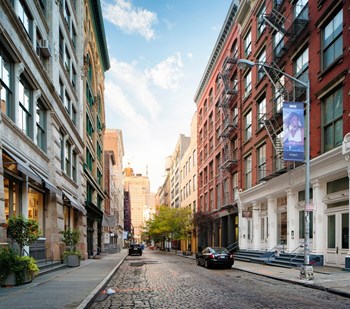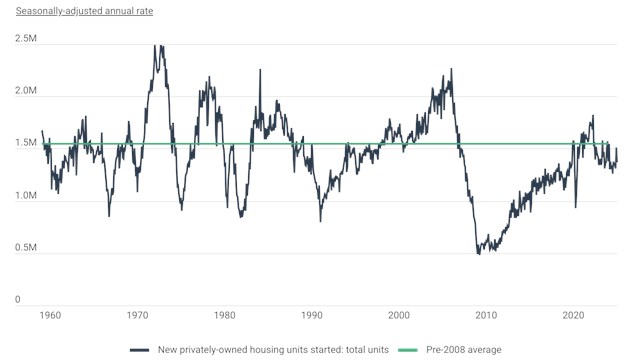
One of the key selling points about New York City living is convenience. To have everything you may ever need a few blocks or subway stops or a delivery away is such a privilege as to offset the Big Apple's exorbitant real estate prices, at least for some. So given the ready access to food, apparel, arts and leisure, how important is it for condo or co-op buyers and owners to have enviable commercial retail on the ground floor of their buildings or on their blocks? Does it really move the needle when compared to a property that's a few blocks or even a short subway ride away?
Your Green Grocer
“I think people care,” says Elizabeth Ann Stribling-Kivlan, president of residential real estate firm Stribling & Associates (which has offices in Manhattan and Brooklyn), in regards to extreme convenience to retail – especially healthier grocers such as Whole Foods. “When you're developing a new property, you have to be mindful of the retail that you put in. If residents are to be paying upwards of $2,000 per-square-foot, you don't want a low-end commercial space in that building. Do you want to pay that much money just to walk downstairs and go to a dive bar? I'm not putting down dive bars, but I don't want to live in 'PBR Land.' I might want to go to 'PBR Land,' but I don't need to live there.”
Granted, the Whole Foods or similar market at or adjacent to your building is not quite as advantageous should there be myriad options for the same type of merchandise nearby. Therefore, as Georgia Lombardo-Barton, president of New York City-based Barton Management LLC, notes, areas that are gentrifying or undergoing a repositioning/revitalization stand to capitalize more from a new, unique, and specific commercial retail option. “A Trader Joe's or Whole Foods will add greater value to a purchaser's consideration when buying into [a burgeoning] type of area,” she says. “The experience of retail vitality is always attractive in pursuit of the ultimate lifestyle when purchasing real estate.”
That said, one issue with having a grocer in your building that can cause some blow-back, according to Klara Madlin, president of Klara Madlin Real Estate in Manhattan, is that with it may come excessive noise, among other things. “There are trucks loading and unloading at various hours,” she says. “And garbage can be an issue; even vermin, to be frank. So it's not as much of a perk if it's directly downstairs as it is when it's across the street or down the block; somewhere close.” Unless, as Lombardo-Barton also observed, the area is in the early throes of development, in which case it can be a boon.
Fit for Purchasing
Despite being constantly on the go, New Yorkers still love their
gyms. So whether you're the type who is steadfast about visiting
regularly, or the type to easily talk yourself out of a workout,
having one in your building – or at least nearby – is an asset.
“I have friends who would literally move into a building
because there's a 24-hour SoulCycle there; that type of thing is a
huge draw,” enthuses Stribling-Kivlan, citing Crunch and Equinox as other
such in-demand commodities.
“Most larger condo buildings have space enough to contain there own gym,” observes Snezan Cebic, a broker with Douglas Elliman. “But in smaller properties, people always want to know where the closest one is. I encounter people looking for workout space much more than I would those who, say, were excited about a Duane Reade.”
In a similar vein, proximity to--or inclusion of--retail such as apparel or luxury brands might cause a potential buyer to give a property a second look, notes Madlin, but it won't necessarily convince them to pay more. “It's a plus, but I don't think someone is going to necessarily shell out more money to live atop an Ann Taylor.”
(Don't) Bring in the Noise, (Don't) Bring in the Funk
As was alluded to above, two major concerns that owners or potential buyers have in regard to ground-floor or nearby retail is noise and smell. As Madlin says, “people don't want to live above a nightclub.”
“I've had a deal die solely due to a grease smell wafting up from the restaurant below,” adds Stribling-Kivlan. “And again, people are afraid of vermin, even if it's just the stigma.”
Given that people purchasing condos or co-ops are often established in a career with a nest egg and potentially a family, it stands to follow that many would put peace and quiet at a premium. In these situations, the more vibrant the downstairs neighbor, the less likely they'd be to invest.
The Finale
There can also be financial benefits to having a thriving retail space in your building, as well; one that can trickle up to the residents.
“If the building owns the commercial retail space, that's a big deal,” explains Cebic. “Your maintenance will be very low, as you can offset costs with the rentals of the building. That said, a lot of condos now sell the retail separately. But it's huge if you're in Manhattan, for example, and you can rent out an office space and use that to offset maintenance and taxes in the building for other tenants. In Brooklyn, at the moment, it's not as predominant due to current tax abatement, but in the next ten years when those expire, I'm sure that those owners too will take advantage of this kind of opportunity.”
Finally, Stribling-Kivlan relates the value of retail accessibility to the broader trend toward insular, self-sufficient communities and neighborhoods. The ability to work remotely has made people less beholden to commuting, and thus has increased demand for various necessities at their fingertips. “Hudson Yards is a great example of commercial, residential and retail synergy,” she says. “As we become more technologically-oriented and less office-centric, we're finding that if we can live, play, eat and relax all in one place, that's changing the landscape of how we live.”
Mike Odenthal is a staff writer for The Cooperator and other publications.






Leave a Comment